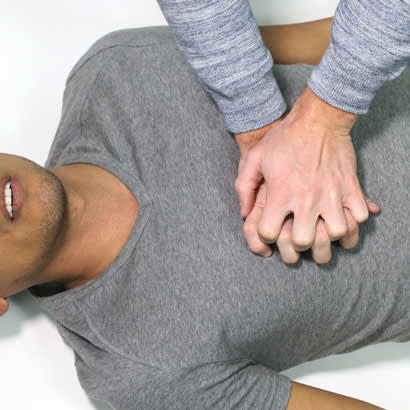
It all started in parks. When I was 4 years old, I started taking swimming lessons at the local park and recreation pool in Winterset, Iowa. By the time I reached high school, I had worked my way up the ranks to become a lifeguard and then worked at my college pool, as well as at the local park and recreation swimming pool. Through these experiences, I learned how to manage a pool; motivate, hire and train new lifeguards; teach swimming lessons; and work with the public. Annual CPR training and first aid training every three years was also part of the requirement for being a lifeguard. The experiences and trainings were all very valuable life skills, and recently, the value of one of those skills was realized during a very critical situation.
I had just sat down to watch my daughter’s soccer practice when her coach asked if I knew CPR. “Yes,” I replied, “but it had been many years ago.” On a neighboring field, a man, who had been coaching his son’s team, had collapsed to the ground and was unresponsive. As I rushed over to where he lay, I thought that my CPR training should come back to me, just like remembering how to ride a bike, right?
Another coach was on the phone with the 911 operator when I reached the man. I felt on his neck for a pulse, but it was very faint and inconsistent. The other coach couldn’t locate a pulse on his right wrist, so, I checked his left wrist and felt nothing. Immediately, I began doing CPR and time seemed to completely stop around me. During my lifeguard training, I recalled the instructors working with us to be sure to push consistently in a steady, rhythmic motion while applying direct force to the chest. Now, the 911 operator was walking us through the steady beat of compressions — 1 and 2 and 3 and 4 and repeat. My arms were growing tired, but this man and his son, who had witnessed his dad’s collapse and the subsequent efforts to revive him, needed my help. It was the longest 13 minutes of my life, as I did compressions until the ambulance arrived.
Twelve emergency responders emerged from two ambulances and a fire truck. Once the man was stabilized, the paramedics moved him into the ambulance and transported him to the hospital. One of the emergency responders who had been collecting information from people at the scene, asked me who had given him CPR and I told him I had. From the tone of his voice, I assumed I’d done something desperately wrong. He took down my contact information and again noted that I was the one who had performed CPR. So, I asked him why and if I had done something wrong. Did I further injure the man because of my rusty skills? “No Ma’am,” he replied, “you saved his life. Were you trained to be able to do that?”
I’m a parks and recreation kid. I grew up in parks, I worked for parks and my family still enjoys parks. My park and recreation jobs gave me the skills to save that man’s life. There were hundreds of people present, but either none had training in CPR or wanted to step up. This is why my job with NRPA is so important to me, and it’s why I love growing up a parks and rec kid!
Anna Amselle, CAE, is NRPA’s Chief Operating and Financial Officer.

